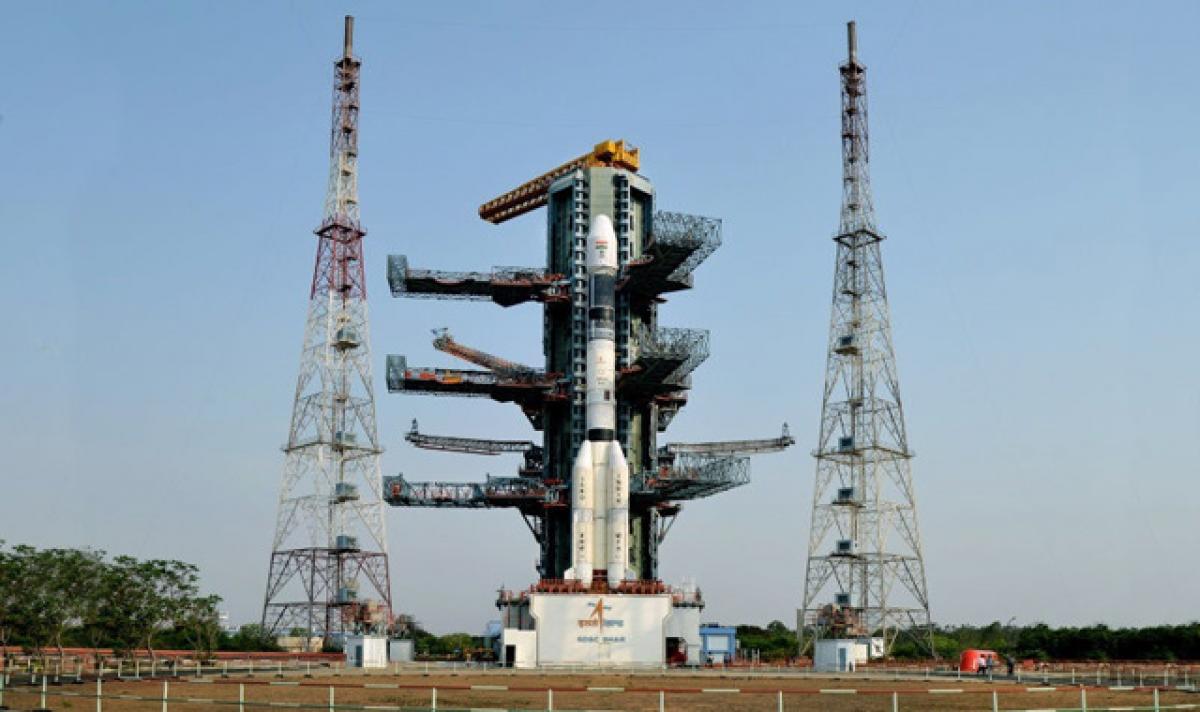Live
- Delhi BJP claims AAP govt will never pay women allowance like in Punjab
- India is 'Mother of Democracy': PM Modi
- ‘One nation, one election’ will undermine India’s federal structure: Mehbooba Mufti
- ‘Bachhala Malli’ trailer heightens anticipation
- Karnataka quota row: Backward Class forum chief warns Lingayat seer over 'tinkering with reservations'
- Tight security arrangements at Group-II examination centers District SP
- Alia Bhatt captures attention in white
- Varun Dhawan talks about ‘Baby John’
- ‘Moonwalk’ trailer promises a quirky heist, love, and loyalty
- Combat leaf spot disease
Just In

The latest episode of Star Wars is here and this sequel has been produced entirely by India. Make no mistake, behind New Delhi\'s warm benevolence to its South Asian neighbours-none of whom have any viable indigenous space programme to speak of-lies cold calculations of recovering some geopolitical space in south Asia amid growing Chinese hegemony.
The latest episode of Star Wars is here and this sequel has been produced entirely by India. Make no mistake, behind New Delhi's warm benevolence to its South Asian neighbours-none of whom have any viable indigenous space programme to speak of-lies cold calculations of recovering some geopolitical space in south Asia amid growing Chinese hegemony.
GSAT-9, the communications satellite put into orbit by Isro on Friday from its Sriharikota space centre, is a 2,230-kg effort to bring back some of the countries within India's sphere of influence through a programme based on technology in which India ranks among the world's top five nations.
And it is expected to address through improved sharing of data poverty-related issues that many of these nations face. Seen from these terms, the GSAT-9 may firm up India's ties with south Asian nations through and on a platform that will remain relevant in the foreseeable future.
As the Prime Minister has said, "The capacities of this satellite and the facilities it provides will go a long way in addressing South Asia's economic and developmental priorities."
BBC in a report calculates that this space-based platform would have set back the participating nations Afghanistan, Bangladesh, Bhutan, Maldives, Nepal and Sri Lanka by almost $1,500m, which indicates that India's space diplomacy has come at a price. But the benefits of this outreach promise to far outstrip the cost.
Operating in the Ku-Band, its 12 transponders offer a bouquet of services including banking networks, weather forecast, telemedicine, disaster management, tele-education and broadcasting services such as television, DTH and the works. What's more, India will also aid participating nations in developing ground stations to access the data relayed by the satellite.
While such collaborations are not unheard of the European Space Agency (ESA) has 22 member states who pool in their financial and intellectual resources to share the fruits of space research never before has one country funded an entire space programme and then 'gifted' the satellite services free of cost to other countries. As BBC points out, "this 'gift' from India has no parallels in the space-faring world. All other current regional consortia are commercial for-profit enterprises."
That the benevolence has been driven by geostrategic concern isn't a secret. In an interview, ISRO chief AS Kirankumar was quite forthcoming that "in this region, you also have a large number of other players trying to come in and get into (space) operations."
It hardly needs to be spelt out that the 'large number of other players' is a euphemism for China. Only two other nations in India's immediate neighbourhood have sent their communication satellites into space and both Pakistan and Sri Lanka have relied heavily on Chinese technological help.
Pakistan, which opted out of the South Asia Satellite (SAS) programme after initially sounding enthusiastic when Prime Minister Narendra Modi had mooted the idea back in 2014 during Kathmandu Saarc summit, is set to deepen its dependence on China in space outreach.
Pakistan's satellites are made with Chinese help, it launches those via Chinese vehicles and in 2018, Islamabad will 'launch' a remote-sensing satellite into space built by the Chinese using Chinese launchpad.
There is more than just friendship at work here. It is a continuation of China's 'String of Pearls' strategy to increase its sphere of influence in India's immediate neighbourhood by collaborating with countries who share proximity of history and geography with India.
As Sinosphere grows in influence, India has tried to push back by renewing its ties with its neighbours and the space programme is a part of that strategy. What's interesting is the date of the programme. The Saarc Satellite (later renamed SAS when Pakistan opted out) was announced in November 2014, shortly after Modi had assumed office.
The boldness of the venture carries Modi's signature all over it from using India's signature low-cost space technology to invest in a robust communication network and then offering it for free to other nations and it signifies that Modi didn't waste much time in recognizing Chinese threat in his backyard.
Along with GSAT-9, other ventures like the Motor Vehicle Agreement between Bimstec (Bay of Bengal Initiative for Multi-Sectoral Technical and Economic Cooperation) states that aims at better regional connectivity between seven south Asian nations (except Pakistan) or India's offer to build satellite tracking station in Vietnam show the PM's chutzpah in countering Chinese sphere of influence through better geopolitical and strategic relationship with neighbours.
India cannot hope to match China dollar for dollar in buying sway. But it can certainly leverage its soft power and dividends from history in securing and furthering regional ties. It needs to, because the global power structure is rapidly changing as China exerts its unilateralism. (This article was first published at www.firstpost.com. Reprinted with their permission)
By Sreemoy Talukdar

© 2024 Hyderabad Media House Limited/The Hans India. All rights reserved. Powered by hocalwire.com







